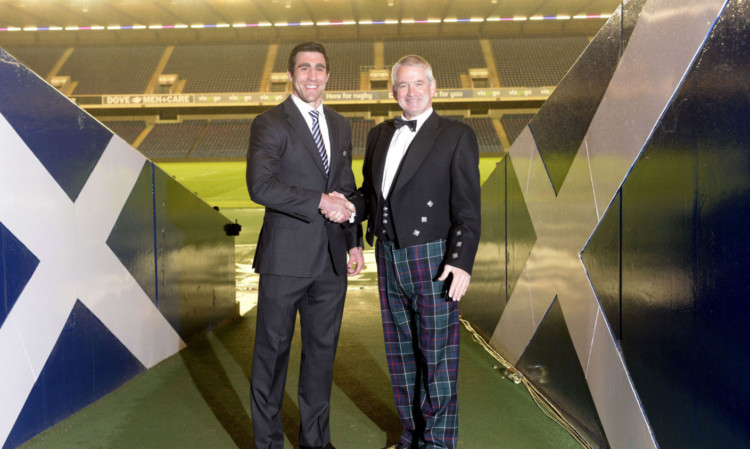By common consent he was the most fearless player ever to play for Scotland at least in modern times and, true to form, David Leslie’s first reaction to induction to the Scottish Rugby Hall of Fame was “not before time”.
Leslie was feted at a gala dinner at Murrayfield on Thursday along with many of his 1984 Grand Slam team-mates, which is exactly as he likes it.
His proudest moment of a great career is not the winning of the slam, nor being captain of Scotland, nor being voted the best player on the planet that season. It is simply being a member of that team.
The coach of the 1984 team, Jim Telfer, still regards Leslie as his favourite player.
“I could stop worrying when David got the ball,” Telfer once said. “You could be sure he would invariably do the right thing.”
But getting the ball for Leslie usually involved diving almost recklessly among flying feet with scant regard for his own safety, and even now the 61-year-old struggles to explain quite why, even then as a budding architect with a young family to keep, he put himself in the firing line with such abandon.
“You never really thought about it,” he says. “You weren’t deliberately trying to be reckless or fearless, but if the ball was there to be won, you tried to win it.
“I always understood that if you hesitated, I was as good as dead. That’s not original but it counts for so much, it’s true.
“It was also about anticipation, which is always better than reaction. I didn’t really care about my well-being. You accept the consequences this is what I can do, and you do it. No more than that.”
It required a winding-up process prior to games which his peers recall with awe even now, nearly 30 years later.
“It wasn’t automatic,” he recalls. “You had to get yourself to that level mentally, but that was easy to do playing for your country.
“But it’s a team game, and most importantly you had to spin off people about you and elevate them as well.
“I see the guys these days wearing their headphones on the bus or in the dressing room. I don’t like that at all. I’d have pulled them off any team-mate of mine. You have to be a team all the time.”
On balance, he’s still glad he played in his amateur era rather than the professional one that came along less than a decade after he retired.
“I’d have liked to have been paid for what I’m good at,” he ponders. “But there was professional rugby in those days, and it was League a great game, hard game.
“I was in Edinburgh just last week to have lunch with John Rutherford, Andy Irvine, Gavin Hastings and other guys. We have a lunch club of guys who won 25 caps or more who meet at our respective clubs every month Roger Baird, Finlay Calder, Iain Milne and a whole bunch of lads.
“I can’t imagine guys from the current era having the same bond in the future as we have. The game is just too intense and demanding now.”
Leslie is still troubled by Scotland’s struggles in professionalism and also by the relatively few coaches that emerged from the 1984 and 1990 Grand Slam teams. He did a little coaching himself with the Under-20s and helping out with the national team for a season in 1998, but had to step back due to pressure of work.
He adds: “I like Plato’s quote ‘Those who carry torches must pass them on.’ I don’t think that happened in Scottish rugby.
“I go to Murrayfield and occasionally go to Mayfield on Saturday to watch a Dundee game, but my wife’s had enough of rugby, and I don’t dispute her. The intensity of it sucks energy out of you, which has to diminish your enthusiasm.”
Instead, having made a remarkable recovery from the terrible fall from the roof of his home five years ago, he enjoys his grandchildren, the latest arriving just last month, and is grounded by his family.
“Rodric was only about two when he came to see the 1984 Grand Slam game, his first ever at Murrayfield, and despite the cacophony he fell asleep on his mother’s lap,” relates Leslie. “He came to the dressing room after the game and I thought I saw eyes of pride and joy at what his father had achieved but instead he shouted “Dad! Bagpipes!”
“A few years later he was leafing through the Rothmans Rugby Yearbook they had back then, and saw that I was World and European Player of the Year for 1984, but was unimpressed.
“He just said, “Dad, you’re history”. I think he was right but it’s still my history.”
